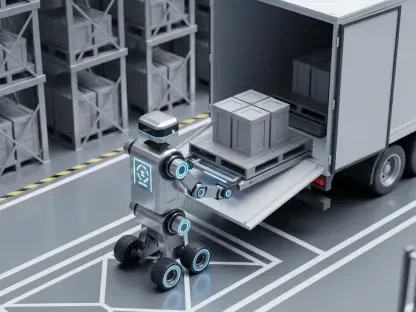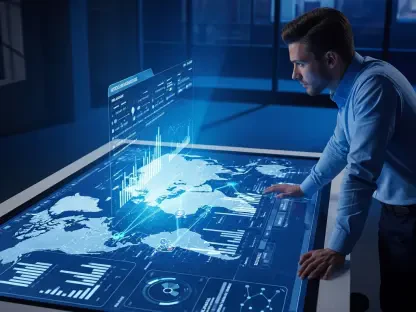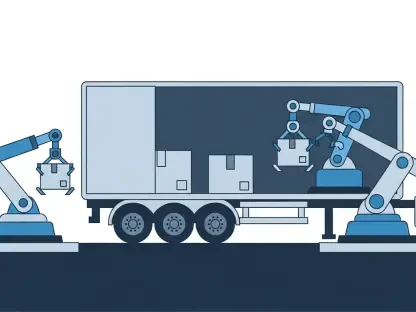Artificial Intelligence (AI) is revolutionizing the logistics sector, driving unprecedented efficiency and optimization amid the global surge in e-commerce demands, largely influenced by shifting consumer habits post-pandemic. The burgeoning technological transformation marks the Middle East as a pivotal distribution hub, underscored by its strategic geographical advantage and robust warehousing capabilities on the vital trade routes between Asia and Europe. This transformation necessitates an exploration of AI’s critical role in redefining logistics practices today.
Exploring AI’s Core Principles in Logistics
AI technology fundamentally alters traditional logistics operations by introducing sophisticated machine learning algorithms, predictive analytics, and automation. In logistics, AI’s components have evolved to address complex supply chain challenges, significantly enhancing operational efficiency. This technological evolution seamlessly integrates with the broader tech landscape, reflecting a commitment to innovation and the commitment to meet the modern market’s demands.
Core Features and Components of AI in Logistics
AI Algorithms and Data Analytics
The transformative power of AI lies in its capability to analyze and interpret massive datasets, aiding logistics companies in predictive decision-making and optimizing supply chain management. These algorithms effectively forecast demand, manage inventory levels, and predict maintenance needs, thus empowering businesses to boost performance and minimize costs. As such, AI is critical in honing the logistics sector’s efficiency and competitiveness.
Automated Process Integration
AI’s introduction in logistics epitomizes the automation of traditionally manual tasks like order picking, inventory tracking, and warehouse management. Advanced AI systems integrate seamlessly with existing processes, enabling real-time data processing and decision-making. These systems alleviate labor-intensive tasks and improve accuracy, thereby reducing error rates and expediting order fulfillment.
Emerging Developments and Innovations
Recent advances in AI-based logistics highlight a series of groundbreaking innovations that have reshaped customer expectations and business models. The development of AI-enhanced platforms has been monumental in shifting logistics paradigms from conventional practices to a more dynamic and responsive structure. This agile shift is exemplified by the adoption of AI-driven cross-docking processes, which significantly enhance throughput and precision in inventory management.
Real-World Implementations in Various Sectors
AI’s integration within the logistics sector has led to its adoption across multiple industries, from retail and manufacturing to pharmaceuticals and the automotive industry. Notably, AI has found unique applications in e-commerce logistics, where it has improved customer experiences through precise delivery estimations and personalized service. These instances underscore AI’s profound impact and versatility within the industry.
Overcoming Challenges in AI Logistics
Adopting AI in logistics is not devoid of challenges, including technical barriers, regulatory constraints, and resistance from stakeholders apprehensive about technological transitions. Initial reluctance, often termed ‘AI-phobia,’ poses challenges to widespread adoption. Nonetheless, strategic deployment practices, comprehensive training, and change management strategies have been instrumental in overcoming these barriers, facilitating successful AI integration.
Anticipating AI’s Future Trajectory in Logistics
Looking ahead, AI stands poised for further advancement and transformative impacts within the logistics sector. With continuous innovations on the horizon, potential breakthroughs in AI technology could redefine logistics operations altogether. The long-term implications of AI adoption will likely revolutionize supply chains, enhancing sustainability and efficiency in the logistics industry.
Synopsis and Final Impressions
In review, the transformative role of AI in logistics is evident in its ability to optimize processes, improve performance, and pave the way for future advancements. The potential for continued technological evolution presents both opportunities and challenges, requiring strategic adoption and adaptation efforts. Ultimately, AI’s profound impact on logistics positions the industry at the forefront of digital innovation, emphasizing the need for continued exploration and integration of AI-driven solutions. The journey toward a digitally empowered logistics system promises significant advancements, shaping the future of logistics operations.









